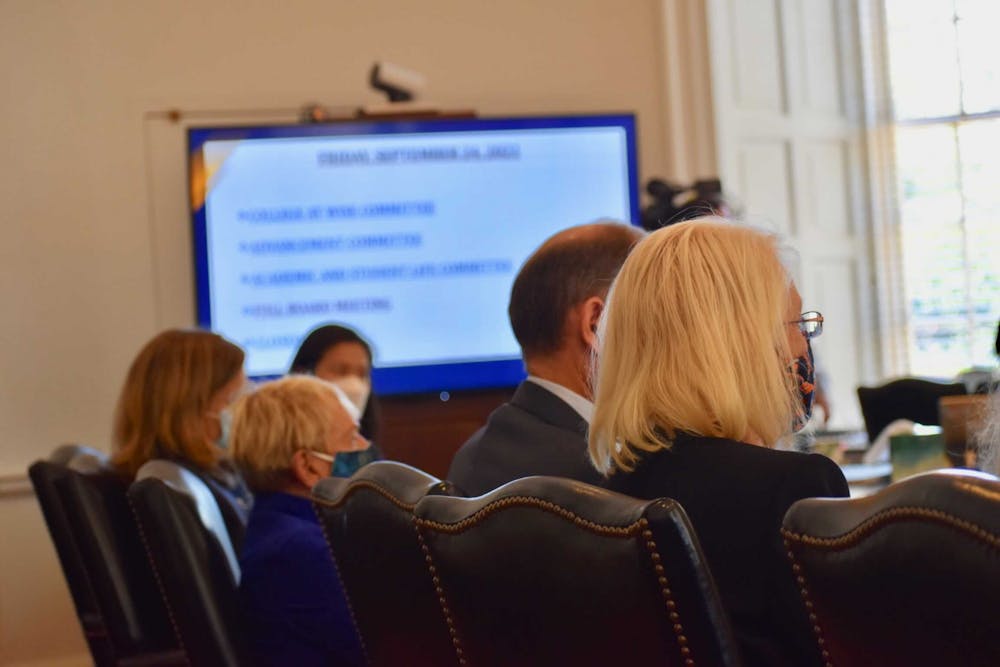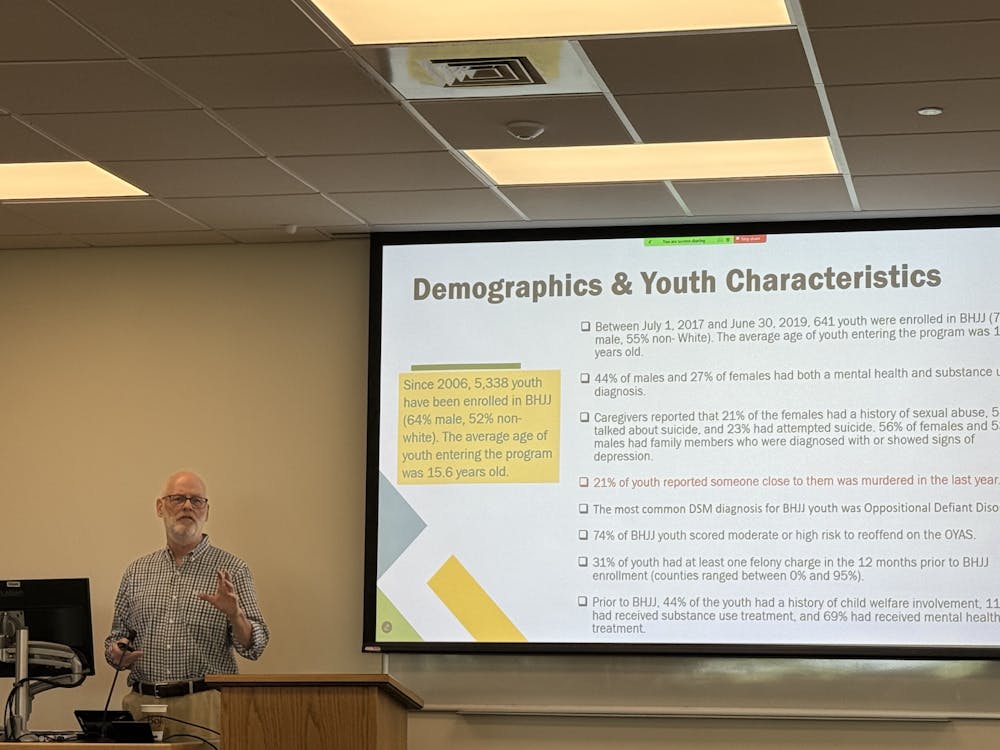The Board of Visitors’ Buildings and Grounds Committee finalized the design for a new Karsh Institute of Democracy building and a $65 million energy plant at Fontaine Research Park, along with reviewing plans for pending projects in the 2022 Major Capital Plan during Friday’s 8:30 a.m. meeting.
Discussion was mainly focused on the University's 2023 Major Capital Plan, which was approved June 2022 and includes all building and infrastructure projects with budgets of $5 million or more.
Members reviewed the final schematics for the $80 million Karsh Institute of Democracy, which was approved by the Board June 2021 and will be the centerpiece of the new Emmet Ivy Corridor. The new Karsh building will house a 425 seat auditorium and various classrooms and offices aimed at housing interdisciplinary debate concerning contemporary challenges for democracy.
The final design features white brick pillars encasing the circular central auditorium. The building’s designers aimed to pay homage to the Rotunda and Jeffersonian architecture while also creating a distinctive, contemporary facade. Board member Bert Ellis, however, raised concerns that the design strayed too far from the historical architecture of the Lawn.
“If you planted this building somewhere else, no one would notice the University of Virginia,” Ellis said. “There’s no consistency.”
Others, however, argued that the design was a necessary evolution to Jefferson’s original designs. According to Board member Carlos Brown, the new building offers a chance to build upon Jefferson’s key design pillars and translate them into more contemporary architecture.
“I think there’s an opportunity to make [the new Karsh building] a part of the educational experience,” Brown said. “This is how you can translate, over two centuries, the themes that Jefferson intended into a modern context.”
The $65 million energy plant slated for construction in the University’s Fontaine Research Park was approved unanimously. The facility will be the University’s first zero-combustion, fossil fuel free energy plant, with energy being generated through geo-exchange well fields that utilize thermal energy to generate electricity.
University Architect Alice Raucher projected that the new plant will save six to eight thousand tons of carbon emissions and about $1 million in energy costs per year — the plant is therefore being expedited out of necessity. The University aims to be carbon neutral by 2030 and fossil fuel free by 2050.
“The system will significantly advance our efforts to reach our 2030 and 2050 sustainability goals,” Raucher said.
The Committee also reviewed the progress of the University’s many ongoing construction projects and building initiatives, including $114 million which has been aimed towards second-year dorms — part of the 2030 plan which includes requiring students to live on-Grounds their first two years. Members said they hope to finish the planning stages by December's meeting and then launch construction.
Additionally, the new Contemplative Commons building, which will be used for both academic activities and extracurricular events, remains under construction with anticipated completion by late fall.
Other projects within the Major Capital Plan include the final stages of renewing Alderman Library — which is projected to re-open for students by late November — and the new Olympic Sports Center in the University Athletic Complex.
Of the $2.9 billion previously approved for the plan as of 2022, the University has completed $400 million thus far. 40 percent of planned projects are currently under construction, with 32 percent in the planning and design phase and the remaining 28 percent not yet initiated.
During the meeting, members approved various additions to the existing plan, including a larger public safety building and a research computing data center.
The Committee also voted to remove several previously approved initiatives from the plan, including a new Darden building, the second phase of Pinn Hall renovations, a larger Student Activities building and a U.Va. Health data building. Removed projects could be readdressed at a later date but were deemed less relevant than other projects for the time being.
The Building and Grounds Committee will meet again during the Sep. 14 to 15 meeting of the Board.







